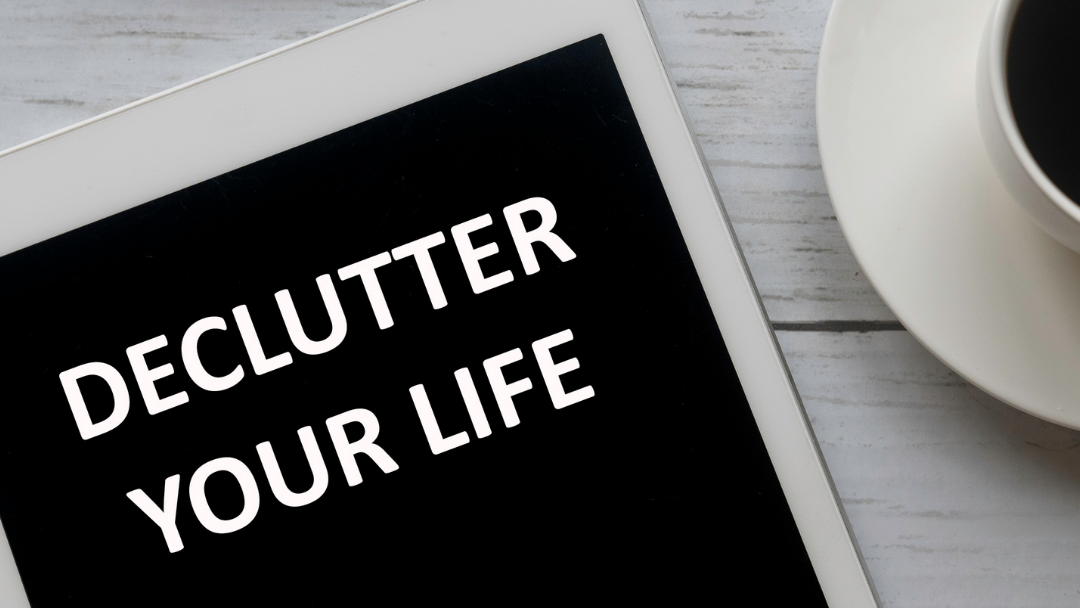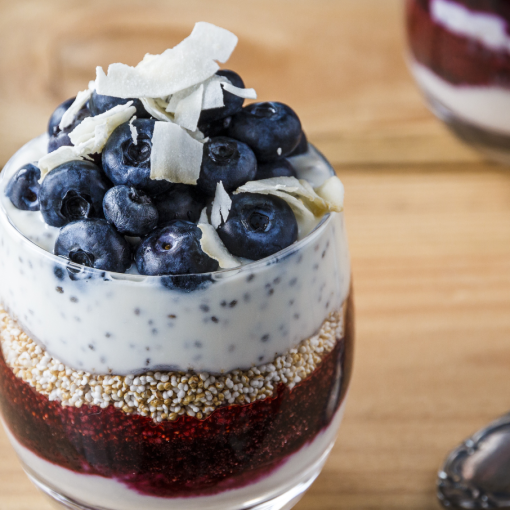Did you know you can declutter your mind by decluttering your space?
Last week was the beginning of Spring. We know what that means…spring cleaning! Extra stuff does equal extra stress.
Some research suggests that decluttering can have as much of an effect on your well-being as it does on your physical space.
When your environment is not clean or organized, it can cause feelings of anxiety and guilt. You may feel stressed, worried and overwhelmed and just not know where to start.
By making an attainable daily plan that attacks any clutter or disorganization issues and getting a handle on your situation, you will feel better. You should feel relief, like a weight has been lifted resulting in a calmer and clearer mind.

It also can take away your precious free time when you are home and I am sure you would rather play a game with your child or take a walk around the block but that unwashed sink of dishes is silently screaming at you.
According to Kristen Fuller, MD at Very Well Mind, the risks of clutter are:
- Procrastination. Research shows that people with cluttered homes tend to procrastinate on important tasks. You might have to dig through stacks of papers to pay the bills, or maybe you have so many piles of dirty clothes that it feels overwhelming to start the laundry.
- Difficulty Focusing. Clutter can actually be distracting. Our brains can only focus on a so much at a time. So, if you’re surrounded by clutter when you’re trying to work from home, for example, the clutter can actually make it harder for you to think clearly.
- Increased Stress Levels. Ideally, home is a place where we can rest and relax; however, clutter can make it hard to do that. One study found that women who reported more clutter in their homes had higher levels of the stress hormone cortisol throughout the day compared to women who had less clutter.
- Trouble Controlling Impulses. One study found that a cluttered environment combined with an “out-of-control mind-set” triggered participants to engage in unhealthy eating behaviors. In other words, the research suggests that it can be more difficult to control your impulses when your mental health and your environment are stressful or “chaotic.”
- Lower Quality of Life. Clutter can easily lead to a nearly constant feeling of frustration as you struggle to complete daily tasks. The time you spend looking for objects you need or attempting to organize your items could be time spent with loved ones, doing some self-care, or even just relaxing.
Benefits of decluttering include:
- Better focus. Clutter makes it difficult to find what you need. It may also distract you. Getting rid of visual clutter can help you focus better on any task at hand.
- Higher self-esteem. When you have trouble staying organized, you may feel out of control. Improving your living space can restore feelings of competency and pride.
- Better relationships. Conflict with family or roommates often occurs when one person can’t control clutter. Also, you may be more comfortable inviting friends into your home when it’s tidy.
- Lower risk of asthma and allergies. You may think your house is messy but not dirty. But it’s hard to clean around piles of belongings. Decluttering can prevent pests and reduce dust, mold, and mildew, which may trigger asthma and allergies.
- Improved lifestyle and well-being. It’s easier to prepare healthy meals in an orderly kitchen. And most people sleep better in a neat room with a tidy bed.
Let’s get to action — here are some tips to declutter your home:
- Every time you leave a room take a few things that don’t belong there and put them in the right place while you head to your next destination.
- Set aside 10 to 15 minutes at the end of each day to put stray items away.
- Go through your closet and get rid of any clothing that doesn’t fit, is ripped or stained or that you know you will never wear again – even if Aunt Susie bought for you for your birthday 5 years ago.
- Look at your shelves, are there a bunch of knickknack or books that have no meaning to you and yet are collecting dust and cluttering your eyeline? Maybe it is time to find those items a new home. You can donate or sell.
- Focus on not having as many horizontal spaces, they collect stuff.
- Have garbage, donation, or sell boxes set up and each day take a drawer, a cupboard, or a closet and organize into these boxes, even as you are tidying up a room and come across something. By taking small bites at a time, it will not feel as overwhelming as if you tried to empty out your whole kitchen in one day, causing you to feel defeated and possibly give up.
- Once you are done decluttering make sure that everything you have left, has a home. It is easier and faster to tidy up if you are not trying to find a spot for something that is homeless, it becomes second nature.
- For every new thing that comes into your home, one thing can go out.
- Ask yourself whether you’ve used an item within the last year. If the answer is no, chances are you can safely donate it without missing it.
Tips on how to declutter while still respecting the others that live in your home:
- Make decluttering into a fun family project, just because you may be ready to part with something doesn’t mean someone else is. By having everyone involved this gives them a sense of control and they will feel respected and be more likely to embrace the decluttering process.
- Do not throw out things that may mean something to someone else, if it is not solely yours, discuss what to do with it before disposing of it. Emotions can get placed on things, and this can cause hurt and distrust to form if not handled with care and understanding.
- With children, go through and throw out any broken toys. Then sit down with them and have them help you to find which toys they would like to rehome to children that can’t afford new toys and they do not play with it as much.
- Toy rotation, many times kids get just as overwhelmed as we do when faced with too many options and so their toys do not get as utilized as they would if there were less. Take some bins and fill them up with under played with toys and display the remaining ones in a fun new way to get your child’s attention. When there are less options, they will stop feeling overwhelmed and start getting creative with what is in front of them. Then you can rotate the bins every month or two and it is like they are getting brand new toys each time.
Be kind to yourself and focus on the positive action of clearing out your space and making it more usable and less overwhelming and a place you can find as a sanctuary, which is what your home should be.
Pay attention to how the process of decluttering is making you feel. Is it refreshing being able to find your favorite shirt and not be late to meet your friends? Do you sleep better at night? When you walk in your front door is the feeling of dread, due to all the stuff closing in on you, now gone?
Spend less time picking up your things and having to dust knickknacks and spend more time partaking in activities that bring you joy and create more work life balance.
Happy Spring Cleaning!
Looking for better health, but not sure how to get started?
STEP 1: Join our FB Private Coaching Group
STEP 2: Check out our Blog
STEP 3: Book a Free Body Composition Assessment
STEP 4: Request your Free No-Diet Guide
STEP 5: Join our 21-Day Fitness Challenge




